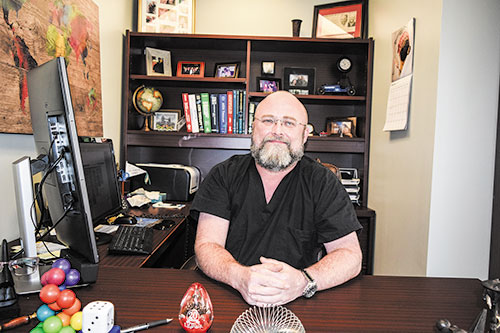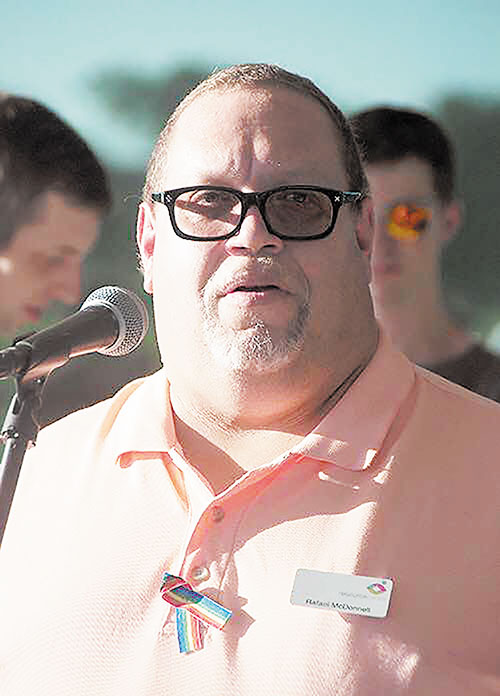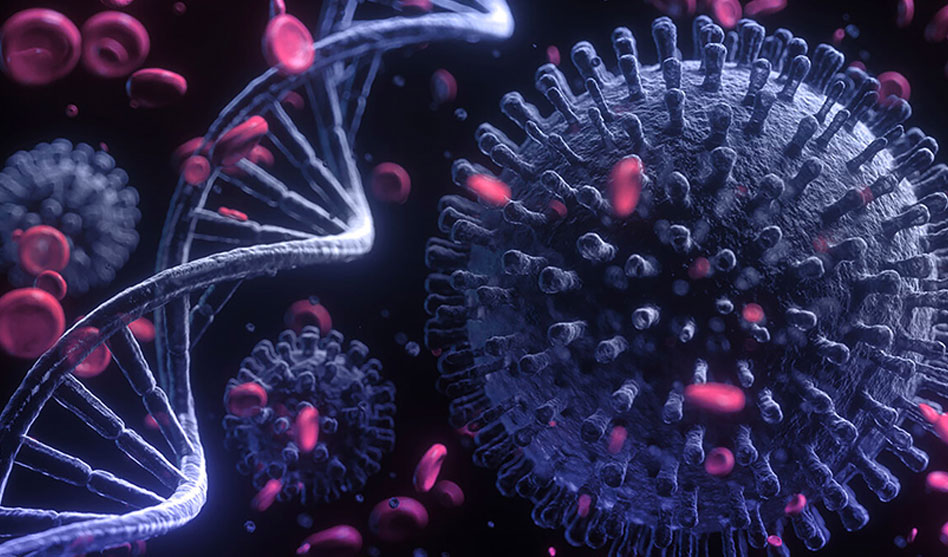A year into the pandemic, we look at how the LGBTQ community is doing
DAVID TAFFET | Senior Staff Writer
taffet@dallasvoice.com
After a year of social distancing and, for many people, isolation from family, friends and coworkers, there’s optimism that things will start returning to normal over the summer. For LGBT Health Week, we asked several healthcare providers how the community stands one year into the pandemic.
President Joe Biden started his administration by promising to administer 1 million vaccinations by 100 days into his presidency. He achieved that goal in 58 days.
Now he has promised that enough vaccine will be available for anyone who wants to be vaccinated by the end of May. But availability isn’t the same as getting vaccines into the arms of everyone immediately. So most community leaders don’t see a safe return to normalcy before sometime this summer.
One of the worst fears for the LGBTQ community was that COVID-19 would have a devastating affect on people living with HIV. According to Dr. John Carlo, CEO of Prism Health North Texas, our worst fears about coronavirus and people living with HIV haven’t materialized. Among his agency’s patients, he said, he knows of only two deaths from COVID-19.

Dr.John Carlo
“Early reports from China indicated fewer people with HIV coming down with coronavirus,” Carlo said. But subsequent reports from Europe didn’t back up those claims.
Still, Carlo said, HIV that is controlled by medication doesn’t cause more severe infection.
“People living with HIV have higher rates of hypertension and kidney disease,” Carlo explained. And those are underlying conditions often cited in deaths from coronavirus. “So it’s hard to tell the effect of HIV,” he said.
Carlo said early studies looked into whether drugs used to control HIV would help cure COVID, but researchers found they had no benefit. But Remdesivir, which Carlo said is similar to the HIV medication Truvada, is used in treating COVID-19, “So there may be some effect.”
So how does Carlo account for a low prevalence of severe coronavirus cases and only two deaths among his patients? “Someone in care with us gets good primary care,” he said.
He added that in addition to having their HIV under control, Prism Health patients understand the importance of social distancing and wearing a mask. And not only are those patients’ HIV being treated, COVID risk factors they face, like high blood pressure and diabetes, are more likely to be already under control.
Carlo warned the community that even as more people are vaccinated, we shouldn’t expect one big day to declare the pandemic over; things should open back up in phases. Over the summer, he said, expect more outdoor activities with smaller groups, but not big indoor dinners with 3,500 people.
In Europe, some countries are experiencing a third wave despite being ahead of the U.S. in vaccinating their populations, Carlo noted. Germany is going through another shutdown due to infection with coronavirus variants.
Because of the way the virus is spreading, Carlo said he doesn’t expect to hit herd immunity until immunization rates are in the high 80 percent range, maybe not even until we reach somewhere in the area of 90 percent.

Bryan King
Bryan King, vice president of clinical research and business development for North Texas Infectious Disease Consultants, agreed that those with their HIV under control are not more likely to contract coronavirus or have a more severe case. But those with a weakened immune system not controlled by medication may become sicker, he warned.
For King, the year of the pandemic has been one where HIV diagnoses have decreased. The bad news in that is that fewer people have been getting tested; the good news, though, may be that there are fewer new infections because people are hooking up less.
“New [HIV] cases are down thanks to COVID,” he said.
King said this year has seen a turning point in HIV treatment. Rather than using Truvada for HIV treatment or prevention, his patients are mostly taking Descovy, which is less likely to cause bone density and renal problems.
Also, his office has been part of a research trial for a monthly injection to treat HIV that would replace daily pills. That treatment has already been approved, but the medication is so long-lasting, the FDA is considering approving the injection as a once-every-two-month treatment or even as a quarterly, six-month or annual dosing treatment.
And, King said “New, long-acting medicines are on the horizon.”
The trial for the longer-lasting injections has been going on in his office for three years, and King called it one of NTIDC’s most successful studies.
King also said his office is proof that PPE — personal protective equipment, such as masks — works: No one in his office contracted coronavirus from patients or other staff. “We saw research patients through the pandemic,” he said. “PPE has been sufficient.”
He encouraged people to continue wearing masks.

Rafael McDonnell
For organizations like Resource Center, providing some of the services that help maintain health has taken some creativity as they worked to continue operations during the pandemic.
The food pantry was a pioneer in allowing clients to shop for what they wanted in a store setting. In fact, the North Texas Food Bank would bring people who ran other pantries to see Resource Center’s unique format. During the pandemic, the agency adopted the latest in retail service — using contactless delivery by placing filled bags directly in a car trunk.
The hot meals program adapted to the pandemic with take out meals, but the program expanded the choice to breakfast as well as lunch. When the hot meals program was first created, giving people who were often isolated an opportunity to socialize was as important as the meal. To help keep that aspect of the program in place, an HIV long-term survivors group now meets virtually, giving those with access to wifi the chance to interact.
In fact, many of Resource Center’s services are offered virtually now. Insurance replacement and case management are among the services now administered online. Telehealth allows clients to access counseling and some medical appointments with the center’s LGBTQ Health program medical professionals from the comfort of their own homes. Even though a medical exam via computer comes with some limitations, it does allow patients from a wider area to consult with a doctor or counselor.
Resource Center Advocacy Manager Rafael McDonnell said he remembers how, a decade ago, he was flying all over the state to do LGBTQ sensitivity training for Texas Alcoholic Beverage Commission after the botched raid on the Rainbow Lounge in Fort Worth. Now he is able to accomplish even more: Resource Center’s Patrick Hanley and Leslie McMurray recently trained a law firm in St. Louis, and McMurray did trans training with the NHL’s Arizona Coyotes — all via Zoom.
McDonnell said Resource Center has seen a slight uptick in new clients since the beginning of the pandemic. People have lost jobs, and losing their jobs means they have also lost their insurance and access to HIV medications. Despite that, he said, Resource Center has managed to continue serving its clients using a little creativity.
“We’ve learned about doing the best you can with what you’ve got,” McDonnell said, summing up what has been probably the most important lesson for everyone that has come out of 12 months of pandemic.

